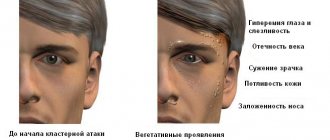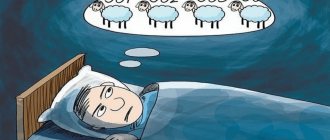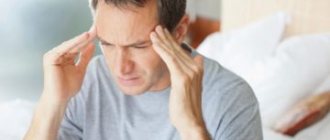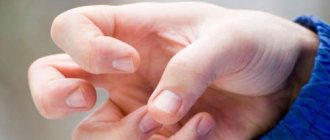In this article we will tell you:
- Why healthy sleep is so important for the body
- 3 myths about insomnia
- Common Causes of Sleep Problems
- The connection between sleep disturbances and vitamin deficiency
- Vitamins and minerals needed for healthy sleep
- Foods rich in vitamins for sleep
- Treatment of insomnia and selection of medications
- 17 Final Helpful Sleep Hygiene Tips
Poor sleep can cause disease, stress, obesity and chronic insomnia. The latter, by the way, is the scourge of the 21st century.
To fall asleep and stay well, you need to consider many factors. We are talking about the regime, the presence of physical activity, eating foods rich in vitamins for the production of the sleep hormone - melatonin, and acceptable conditions in the bedroom. And this is only a small part of what is important to control in your life so as not to suffer from sleepless nights.
Why healthy sleep is so important for the body
Sleep is a natural physiological state, the opposite of the waking state, characterized by a reduced reaction to the outside world.
Sleep phases:
- First stage of sleep
- A nap is a very shallow sleep of up to 5 minutes. Theta waves in EEG are small waves with a frequency (3-7 Hz).
- Second phase of sleep
- up to 20 minutes, on the EEG - pulse bursts of high frequency and low amplitude. spindles and K-complexes (12-14 Hz).
- Third phase
sleep - deep sleep. High-amplitude low-frequency waves appear on the EEG - delta waves (0.5-2 Hz).
- Fourth stage of sleep
- even deeper sleep. On the EEG - delta waves, breathing and heart rate slow down, body and brain temperature decreases slightly.
Night sleep usually consists of 4-6 cycles. Each cycle approximately consists of 60-100 minutes. It begins with the slow-wave sleep phase, which after 50-70 minutes is replaced by the REM sleep phase for 10-20 minutes, after which the slow-wave sleep phase begins again, etc.
Unlike many animals, humans do not wake up after each sleep cycle. In the first cycles, slow-wave sleep predominates, in the last cycle, REM sleep predominates. The depth of sleep gradually decreases.
The duration of slow-wave sleep is 75-80%, fast sleep - 15-25% of the total duration of night sleep. In an adult, slow-wave sleep accounts for 6.5 hours, and REM sleep accounts for 1.5 hours. In a newborn, REM sleep accounts for 50-80% of the total sleep duration.
Healthy sleep
:
- This is an uninterrupted night's sleep, sufficient in time and quality, bringing a feeling of rest.
- The normal sleep duration is from 6 to 10 hours of continuous sleep per day. The main criterion is good health during the day (lack of drowsiness).
Sleep deficiency externally
:
- reddened whites of the eyes;
- dark circles under the eyes;
- swollen upper eyelids;
- pale or sallow skin;
- hair loss
- general unkempt appearance.
Internally in the skin
:
- Collagen production decreases.
- Blood microcirculation is disrupted.
Weight and appetite
:
- Appetite increases.
- The craving for sweets increases.
- The body's consumption of fat slows down (lack of somatotropin), which leads to obesity.
A meta-analysis of 45 studies on excess weight suggests an increased risk of obesity in people who don't get enough sleep.
A reduction in sleep duration of 1 hour per day has been shown to be associated with an increase in body mass index (BMI) of 0.35 kg/m2.
The effect of short sleep duration on the risk of obesity was more pronounced in children. It may be that the metabolism of children and adolescents is more sensitive to the effects of sleep deprivation. Sleep during childhood is important for brain development. There is a hypothesis that sleep deficiency during childhood and adolescence may change the mechanisms of the hypothalamus responsible for regulating appetite and energy expenditure.
With a forced shift in circadian rhythm in adults (mean age 25.5 years; BMI 25.1 kg/m2), researchers observed a decrease in leptin, an increase in postprandial glycemia, insulin, mean arterial pressure, and a change in the rhythm of cortisol secretion with higher peaks before and after sleep. awakening.
According to some data, people who work shift work have a higher incidence of diabetes mellitus, obesity and cardiovascular pathology, and several studies have shown a connection between changes in the expression of clock genes and diabetes mellitus, obesity and metabolic syndrome, although the pathogenetic mechanisms the underlying factors for this association are not fully understood.
Studies with sleep restriction in healthy volunteers have shown a decrease in nocturnal and an increase in daytime ghrelin concentrations, which appears to contribute to increased appetite and hyperphagia, increasing the risk of developing obesity in the future.
Tips for those who have trouble sleeping
It’s not enough to just take vitamins for sleep; you also need to create an atmosphere suitable for relaxation in the room:
- The culprit of the disease can be a susceptible nervous system: noise, light - a strong irritant that needs to be gotten rid of. If you can't sleep, you need to use earplugs and a sleep mask.
- It is not recommended to overeat. The final meal should occur 3 hours before bedtime.
- When going to bed, a person should feel slightly tired. A walk in the fresh air or good physical activity for relaxation will help reduce cortisol levels, and you will sleep easier.
- You need to give up daytime sleep.
- Those who are committed to working until late at night should remember that at least an hour before bedtime it is necessary to abstract themselves from activity so that the brain calms down and begins to relax.
- You need to think about your daily routine and go to bed at the appointed time.
- Before going to bed, the room needs to be ventilated, the temperature of the atmosphere should be comfortable.
- A warm blanket helps most people fall asleep. Doctors say that in a dense cocoon a person feels more protected and calms down more easily.
- Before going to bed, you can take a warm shower or bath.
- Clothes should be loose and comfortable, made from natural materials.
- It is not recommended to listen to deafening music or watch scary movies.
- You should not drink tea, coffee, or energy drinks at least 4 hours before bedtime. They increase blood pressure, increase heart rate, and reduce sleep quality. Alcohol, some spices (ginger, hot pepper), and fast carbohydrates are also stimulants of nervous system wakefulness.
Common Causes of Sleep Problems
Obstructive sleep apnea syndrome
APNEA – cessation of respiratory movements.
This is something that few people know about, but this problem is very common, especially for overweight and overweight people. These are the people who say they haven't eaten anything for three weeks, been on the water for three weeks, but they can't shift the weight. This kind of resistant obesity may just indicate the presence of obstructive sleep apnea syndrome.
We recommend
“The best courses in nutritionology abroad and in Russia” Read more
Essentially, sleep apnea is a pause in breathing during sleep, which is associated with the fact that the airways at the level of the oropharynx are blocked. Normally, air passes freely through the respiratory tract during sleep, but under some pathological conditions the walls of the oropharynx narrow or close so much that complete closure occurs. This leads to the fact that air does not pass into the lungs.
Such apnea can occur quite often during sleep, and in some severe cases, apnea takes up about 60% of the entire night's sleep. Naturally, a person wakes up broken. A person is not aware of these pauses in breathing during sleep, he does not remember them.
What does it look like from the outside? People who sleep with apnoecs nearby notice that they experience shortness of breath during sleep. Holding your breath during sleep is also possible in healthy people. But they last no more than 10 seconds, but if they are longer, more prolonged, associated with pathological causes, then something needs to be done, because otherwise during the day, the danger of APNEA is not only that the risk of death increases during sleep time, but also in that the risk of suddenly falling asleep during the day increases.
Causes of APNEA syndrome
:
- Obesity, overweight
. Excess weight itself leads to a narrowing of the airways at the level of the oropharynx.
- Age
. When muscle elasticity decreases, the tone of the muscles of the oropharynx and respiratory tract decreases. That is, over 55 years of age, our risk of developing obstructive sleep apnea syndrome increases.
- Adenoids
. This is a chronic inflammation of the tonsils. These are the most common causes of obstructive sleep apnea syndrome in children, and children are retarded in development, both physical and mental.
- Allergic reactions
. Allergic reactions can occur not only to some visible allergens, but also, for example, exclusively when being in your own bedroom, which is facilitated by an old pillow that was inherited from grandmothers and parents. In fact, pillows and blankets, just like mattresses, have an expiration date. Few people remember this either, but old pillows are up to 60-80% filled with dust mites and their waste products. The carpet above the bed is the same dust collector that collects kilograms of dust. It absorbs all kinds of smells and aromas. The same applies to the provocation of allergic conditions during sleep due to the presence of plants in the bedroom. This also needs to be remembered that everything flowering and ornamental plants are powerful allergens. There is no doubt that they have no place in the bedroom. If you are allergic to house dust, then it is worth remembering that the soil in pots is also a certain microflora, and there is a large amount of dust and life in these pots. If a person is allergic, then it is better to remove everything.
By what signs can we suspect obstructive sleep apnea syndrome in a person?
:
- Significant daytime sleepiness
. Sometimes daytime sleepiness does not occur at all. A person falls asleep at the wrong moment while negotiating or driving a car.
- Snoring during night sleep
. A person snores - this is a ringing, sonorous snoring that disturbs the sleep of others, disrupting their sleep and depriving the health of others. Snoring is a phenomenon that requires treatment.
- Frequent night urination
when a person wakes up and goes to the toilet more than twice a night.
- Night sweats
.
Restless legs syndrome
This is also a fairly common reason that occurs more often in women; men are less likely to seek help. Why is sleep disrupted? Because when trying to fall asleep, painful, diffuse, unpleasant sensations arise in the lower extremities. These sensations disappear if a person begins to move his legs, or even stands up, begins to dance, and prances around. Naturally, it is impossible to fall asleep in such a motor mode. During sleep, these movements of the limbs are also periodically present.
Possible causes of this syndrome
– this is iron deficiency, magnesium deficiency, folic acid deficiency, as well as diabetes mellitus. Sometimes restless legs syndrome can be hereditary. And here the basis is a neurological pathology associated with a disturbance in the metabolism of the neurotransmitters dopamine. In principle, this can all be treated.
Other reasons
- these are diseases of the veins, varicose veins, and thyroid gland (thyroid-stimulating hormone). Endocrine diseases themselves are very interesting for somnologists, because very often insomnia is precisely a symptom within the framework of endocrine syndrome (EN). Hypothyroidism in its structure is a symptom of insomnia; a person cannot fall asleep. A person has frequent awakenings, dissatisfaction with his sleep, drowsiness during the day and everything that follows from this.
Hyperthyroidism is the same thing, it is anxiety, secondary insomnia, restless leg syndrome. Here insomnia is a symptom of hyperthyroidism. Anxiety and depression. Absolutely all patients who suffer from depressive and anxiety disorders have insomnia. With a few exceptions, in depressive states, insomnia is replaced by hypersomnia, when the patient complains that he is excessively sleepy, he sleeps all night and sleeps during the day. In any case, all patients with depressive and anxiety disorders have this sleep disorder.
We recommend
“Proper nutrition as a factor in maintaining human health” Read more
How can we suspect a person has an anxiety disorder? What psychiatrists call anxiety, ordinary people call a bad feeling. In this case, insomnia is accompanied by vegetative manifestations, tachycardia, rapid breathing of various kinds, sweating, weight dynamics, i.e. either gaining weight or losing weight.
A person cannot fall asleep for hours because anxiety does not go away, and for the process of falling asleep we need complete peace, immobility, silence. If there is no peace, then falling asleep is basically impossible.
In depressed patients, insomnia disorders most often manifest themselves in the morning in the form of early awakenings. They also often experience the same agnosia. This is due to the fact that if you remember the structure of sleep, those same episodes of drowsiness that occur several times during the night are simply not remembered by a normally calm and healthy person. A person with an anxious depressive mood remembers these very moments, and during periods of sleep he becomes amnesic.
Procrastination
The first commandment of a procrastinator: “Do not put off until tomorrow what you can do the day after tomorrow.”
The fashionable word “procrastination” is the tendency to put off (important, difficult, unpleasant, boring, routine) things and decisions, despite possible negative consequences. Such delays are more likely to occur in the areas of work, school, and health care.
Introverts, people with low self-esteem and anxiety, who, when doing things, tend to avoid punishment more than achieve success, procrastinate more often. Postponing important things gives a momentary reward in the form of pleasant positive emotions, anxiety temporarily recedes.
Three questions that procrastinators answer positively:
- Do you get things done at the last minute when you intended to do them days ago?
- Do you hesitate before starting something?
- Do you often tell yourself: “I'll do it tomorrow”?
Answered “Yes” three times? Congratulations, you can proudly call yourself a procrastinator.
Everything would be fine if procrastination were not harmful to health, but alas. First, procrastinators suffer from excessive stress, completing tasks at the last minute when deadlines are pressing. Secondly, procrastinators do not sleep well.
A procrastinator sleeps poorly because:
- I tend to go to bed later both on weekdays and on weekends.
- On weekdays, he sleeps less than a non-procrastinator. Characterized by chronic sleep deficiency.
- Daytime sleepiness is his constant companion.
- On weekends, he sleeps until he wins, which leads to a disruption in the body’s circadian rhythms (desynchronosis).
- He has a higher risk of insomnia due to desynchronosis.
Procrastination leads to sleep disturbances, and disturbed sleep destabilizes emotions and aggravates procrastination: sleep is further disturbed and health is lost.
Procrastination before bed is a separate phenomenon when the procrastinator does not go to bed on time, while no external circumstances prevent him from going to bed at the appointed time.
Sleep for a procrastinator is a boring phenomenon; it can be postponed for the sake of momentary pleasures (social networks on a smartphone, computer games, watching TV series, etc.). Exposure to light from a smartphone or TV screen disrupts the synthesis of melatonin, which further delays the onset of sleep.
Procrastination is based on:
- Availability of temptations (the ubiquity of electronic devices and the 24/7 entertainment industry).
- Problems with self-control (planning and goal setting).
- Anxious-depressive emotional background.
- Lack of emotion regulation skills.
Each of the listed points requires attention and separate actions.
.
Who said it would be easy
?
- The quickest thing you can do is limit your temptations. Remove the smartphone from the bedroom (young people usually react to this advice with skepticism; the older generation usually accepts such restrictions more easily). If your smartphone serves as your alarm clock, buy a separate alarm clock without Internet access. Yes, such alarm clocks still exist.
- Take an online course or read a book on time management to learn how to effectively set goals and plan to achieve them. For example, Maxim Arkhangelsky’s book “Time Drive”.
- Unfortunately, it is unlikely that books will help you cope with clinically expressed anxiety and depression. It is better to turn to a psychotherapist for help, as well as to acquire emotional self-regulation skills.
Emotional self-regulation includes nine key skills:
- Awareness of emotions (I pay attention to my feelings and emotions).
- Clarity (I am clear about what emotions I am experiencing).
- Sensation (my physical sensations correspond to how I feel, my emotions).
- Understanding (I know and understand why I feel the emotions I do).
- Acceptance of negative emotions (I accept all my emotions, including negative ones).
- Resilience (I feel like I can handle even strong negative emotions).
- Willingness to withstand highly stressful situations (I will do what I planned, even if it makes me feel anxious or awkward).
- Self-support in stressful situations (I know how to help myself in a stressful situation).
- Modification (I can influence my negative feelings).
Procrastinators avoid negative emotions. The skill of resilience—the ability to endure unpleasant emotions—is particularly affected. And the more often we procrastinate, the less our resistance to negative emotions becomes.
In fact, procrastination is one of the wrong ways to regulate your mood.
A good night's sleep is especially important for procrastinators. Even one sleepless night significantly increases your anxiety level. And as you already understand, higher anxiety means stronger procrastination. More procrastination means worse sleep. Worse sleep means more anxiety.
Working with a cognitive behavioral therapist will help the procrastinator break all these vicious circles.
The connection between sleep disturbances and vitamin deficiency
Many of us have heard about the sleep hormone – melatonin. It is also called the hormone of life or longevity. But its study continues, as new data constantly emerges about the effects of melatonin on our lives and health.
Melatonin (N-acetyl-5-methoxytryptamine) is the main hormone of the pineal gland, a regulator of circadian rhythms. The oldest antioxidant in the evolution of eukaryotes. MT occupies a central place in biorhythmology.
“Nature created” melatonin as a substance with a short lifespan: stimulation of the MT product in the pineal gland stops, which can happen almost instantly when switching from darkness to light.
Functions of melatonin:
- Regulatory
. Maintains daily, partially and seasonal, biorhythms; regulates body temperature.
- Antioxidant
. Has an antitumor effect; slows down the rate of aging and increases life expectancy.
- Hypnotic
. It is a mild hypnotic.
- Hormonal regulation
. Has an inhibitory effect on the endocrine system - reduces the secretion of gonadotropins, corticotropin, somatotropin, thyrotropin;
- Antidepressant
. Prevents some mental disorders (antidepressant), is an anti-stressor.
- Metabolic
. Has an antihypertensive effect (and prevents the development of metabolic syndrome in general); immunomodulation.
MT increases the content of GABA (an inhibitory agent) in the central nervous system and serotonin in the midbrain and hypothalamus.
The production of melatonin can be influenced by a number of exogenous (in addition to such basic ones as changes in the daily rhythm of life with the degree of illumination or illumination itself) and endogenous factors (including certain genetic ones).
Increases the production of MT calcium, magnesium, nicotinic acid, pyridoxine, MAO inhibitors.
We recommend
“Nutrition for a healthy lifestyle: healthy foods, life hacks, menus” Read more
Smoking, caffeinated drinks, alcohol, non-steroidal anti-inflammatory drugs, reserpine, beta-blockers, calcium channel blockers, vitamin B12 and some others reduce BW.
We especially note that special studies have established low BW in smokers and people with alcohol dependence.
Vitamins and minerals needed for healthy sleep
- Vitamin D
When exposed to sunlight, the human body produces vitamin D. This element improves the quality and duration of sleep. With its deficiency, problems with falling asleep, apnea and other disorders appear.
- Vitamin E
Vitamin E is known as a strong antioxidant that slows down the aging process. He also fights restless legs syndrome - unpleasant sensations in the legs that occur during sleep, wake a person and lead to insomnia.
Women over forty often take vitamin E because it relieves menopausal symptoms, especially night sweats and hot flashes. Tocopherol also helps fight irritability, mood swings and stress caused by hormonal changes in the body.
- Vitamins B3, B5, B6, B9 and B12
Scientists have proven that B vitamins (B3, B5, B6, B9 and B12) also fight stress and insomnia by regulating levels of the amino acid tryptophan. Tryptophan is responsible for the production of melatonin, which, in turn, affects sleep. When there is enough vitamin B in the body, a person quickly falls asleep, becomes less anxious, and does not succumb to psychological disorders. He is energetic, active and full of strength.
For good health, it is important that the body receives all B vitamins, because they work together. Only then will a person have the strength to cope with depression and stress, which provoke insomnia.
- Vitamin C
This is one of the most famous vitamins. It is mainly positioned as a means to strengthen the immune system and increase resistance to various diseases, especially colds. However, in addition to all of the above, vitamin C also fights increased anxiety and promotes restful sleep, because a healthy immune system is the key to good health, and therefore good sleep.
The human body cannot synthesize vitamin C, so it is very important to get it from food or dietary supplements. Otherwise, the immune system will weaken, gums will begin to bleed, hair will fall out, dry skin will appear, fatigue, lethargy, and bruises will take a very long time to heal. And this is not even the entire list of what will happen if the body does not have enough vitamin C.
- Magnesium and calcium
These two microelements work in tandem. If there is not enough magnesium, then calcium will be poorly absorbed. Both elements calm the nerves and promote muscle relaxation, thereby reducing anxiety and internal tension. By helping a person relax, calcium and magnesium normalize his sleep. After all, when all the muscles and nerves are tense, it is almost impossible to fall asleep. Sleep comes when the body is relaxed and thoughts are in the clouds. Many people find it difficult to achieve this state, so taking magnesium is recommended.
Calcium is positioned more as a means to strengthen bones. However, doctors know that this trace element is a natural tranquilizer that relieves stress, tension and helps to relax. Therefore, it is important to consume calcium not only as a means of combating osteoporosis, but also as a vitamin that promotes healthy sleep.
- Theanine
L-theanine is an amino acid that is found in large quantities in tea. Theanine promotes relaxation without causing drowsiness or fatigue. In addition, it stimulates brain function, enhances cognitive function, improves mood, attention and memory, and helps sleep. Theanine's beneficial effect on sleep is due to its ability to help you relax.
We recommend
"Can food heal people: the power of good nutrition" Read more
As already mentioned, the only source of L-theanine is green tea. In Japan, they conducted a study of this amino acid and proved that it improves the quality of sleep, is involved in the restoration of the body and the renewal of consciousness. Green tea also has antioxidant properties, which means it fights premature cell aging.
Vitamin therapy: warnings
Pharmacological vitamin complexes are, first of all, medications that should be used only after consultation with a doctor. It is a qualified specialist who will help you choose the optimal remedy, taking into account the individual characteristics of the body and the cause of insomnia.
And, of course, it is not recommended to use them “...prophylactically,...just in case.” When choosing a complex, it is also necessary to determine the lack of which elements should be replenished.
Attention! An overdose of vitamins can be dangerous, in some ways it is akin to poisoning. Therefore, uncontrolled use of such drugs should be avoided.
Side effects of hypervitaminosis may look like this:
- dysfunction of the gastrointestinal tract;
- headaches, vertigo;
- chronic fatigue;
- problems with hair, teeth, nails, joints;
- high pressure;
- insomnia;
- convulsive syndrome;
- depressive states.
And this is not a complete list of alarming symptoms of exceeding recommended doses of certain vitamins.
Foods rich in vitamins for sleep
- Vitamin D is produced in the body by the sun. On cloudy days, eating egg yolks, fish oil and fortified milk will help replenish its supply.
- Sources of vitamin E include nuts, green leafy vegetables and fruits. Tocopherol has a significant effect on the human body, especially women, so it is advisable to discuss its use in the form of dietary supplements with your doctor.
- There are quite a lot of vitamins belonging to group B. They are mainly found in meat, fish, dairy products, liver, nuts, eggs, some grains and legumes.
- Vitamin C can be found in fruits (oranges, lemons, grapefruits, pineapples), green vegetables, berries, papaya and, of course, sauerkraut.
- Magnesium is found in whole grain wheat, almonds, legumes and spinach.
- Sources of calcium include dairy products, sesame seeds, leafy greens, nuts and salmon.
- Melatonin is found in corn, bananas, tomatoes, rice, carrots, radishes, figs, parsley, oatmeal, nuts, barley, raisins, oats, tea, wine, beer. But most of all it is found in walnuts and coffee: about 300 ng (or 0.0003 mg). This hormone is a strong antioxidant. It also regulates sleep, stimulates the immune system and has an anti-stress effect.
Nata Gonchar
– founder of the MIIII, president of the Association of Nutritionists and Health Coaches.
How to choose the right individual diet?
The most accurate system for selecting an individual diet is the integrative nutrition model. What do we need to know about the person for whom an individual diet is being prepared? Here is the data:
- Gender, age, current body composition
. The nutrition system should be based on whether the person in front of us is a man or a woman, and also take into account the person’s age and physical activity.
- Current health status
(functional and laboratory tests for markers of conditions). For example, one of the key markers directly for a nutritionist is working with macronutrient deficiencies (vitamin D, iron, iodine, selenium, magnesium, B12, B9).
- Metabolism type
.
- Genetics of vitamin absorption, detoxification, carbohydrate and fat metabolism
. For example, depending on a person’s receptors, some will absorb vitamin D better, while others will absorb it worse.
- Place of residence and time of year outside the window
. For example, there is an adaptation of enzymatic systems to “native” products, or increased cases of diarrhea during the holidays (our gastrointestinal tract does not know how to digest exotic products).
- Stress level and mental type
.
- Individual characteristics and preferences
.
And the diet must be adjusted each time due to
:
- Change of season.
- Changes in the client's health status.
- Changing food preferences.
- Reducing or increasing stress levels and correcting mental type.
- Restoring deficits.
That is, selecting the optimal diet is individual, painstaking work, regular checking and changing directions.
Microelements necessary for normal functioning of the nervous system
What microelements are useful for strengthening the nervous system? First of all this:
- Ca: responsible for the normal conduction of impulses from muscles to nerves. There is a lot of it in almonds, various dairy products, and beets.
- Mg: It is responsible for the same functions as calcium, it also relaxes muscles. It is important for a person to eat enough nuts, legumes, eggs, and cereals for his normal intake.
- Fe: thanks to it, normal brain function and speed of mental reactions are ensured. There is a lot of iron in buckwheat porridge, seafood, and spinach.
- Iodine: its intake into the body improves memory; in addition, iodine improves hormonal conditions. There is a lot of this trace element in seafood, for example, shrimp and fish.
- Phosphorus: It helps support the normal functioning of the entire body. There is a lot of it in the brain and liver, in legumes, and various dairy products.
- Potassium: It has its effect on the connection between nerves and muscles. To increase its quantity, you need to include fruits, millet, and peas in the menu.
Treatment of insomnia and selection of medications
Naturally, as a rule, insomnia in most cases resolves itself, that is, it disappears after the stress factor is eliminated. But nevertheless, if the process is still delayed, then it makes sense to go to a psychotherapist to deal with the stressful situation and acquire stress tolerance skills so that in the future such stress factors do not disrupt mental and physical functioning.
Sleeping pills may be prescribed, but short-term cognitive behavioral therapy is a priority. Even sometimes one session is enough, and no sleeping pills are needed.
We recommend
“Physiology of stress and ways out of it” Read more
The doctor may prescribe a short course of melatonin or doxylamine, which is better than benzodiazepines. Even the course prescription of herbal preparations, microelements and multivitamins is a priority. It is known that, for example, stress and neuroses are characterized by magnesium deficiency, so it is possible to prescribe the same physical procedures using magnesium, baths with magnesium salt, which are sold in pharmacies. It's mostly safe. But magnesium will work if there is a deficiency.
As for drugs of natural origin, valerian is recommended, but taking into account the patient’s allergic mood. Chronic insomnia, of course, cannot be treated with valerian. In the case of acute, stress-induced insomnia, you can start with these drugs.
CBT (cognitive behavioral therapy) is the gold standard, primary treatment for chronic insomnia. If a person does not sleep well at night, he is worried and tries to spend all his free time in bed. The point is that it aggravates the situation. For example, on weekends a person lies completely in bed, even without sleep, but he knows that it is useful to lie down, although with his eyes closed and maybe sleep will return, it doesn’t work that way.
Doctors teach patients that if they cannot fall asleep within 30 minutes of being in bed, they need to get up and leave. The bed should be associated with sleep, and not with the fear of not falling asleep.
Moreover, if a person suffers from insomnia, then it is necessary to reduce the amount of time he needs to stay in bed, thus limiting sleep. This is a paradoxical method of treatment, of course, it is better to do it under the supervision of a somnologist in sleep centers, but nevertheless there are methods that can be carried out at home, controlling the time spent in bed.
There are also relaxation techniques that help you relax before bed and help you not drag problems from work, from the street into your home and into your bed - this is one of the basic skills that a modern person should have.
It is also necessary to introduce sports, because for proper and complete sleep a person must be tired physiologically.
When we talk about overwork, problems with sleep also arise here. Pathological fatigue, which is currently understood within the framework of neurasthenic manifestations, is the so-called exhaustion neurosis. It hits exactly those mechanisms that save you from fatigue - insomnia and lack of appetite.
How do we usually make up for the deficiency of plastic substances and energy deficiency? Through food and sleep. And here is extreme fatigue, it hits precisely those mechanisms that save you from it, so it is imperative to observe a regime of work and rest, not just sleep and wakefulness.
If these skills turn out to be insufficient, which happens extremely rarely, only then do somnologists recommend resorting to the prescription of sleeping pills. But with caution, because sleeping pills, firstly, have side effects, and secondly, they tend to aggravate the fear of not falling asleep.
There is a high potential for developing dependence on sleeping pills, a drug called grandma's drug is especially dangerous - it is phenobarbital, which is contained in over-the-counter drugs - Corvalol, Valocordin. A very dangerous situation has developed in the Russian Federation with these drugs. Phenobarbital relieves psychomotor tension and gives calm relaxation, which is why grandmothers use it literally in bottles throughout the day. Because of this, physical dependence occurs. More and more doses are required to obtain the desired effect, and drug addiction is evident.
Why is this dangerous? The withdrawal syndrome occurs powerfully, for example, the grandmother ends up in a hospital, keeps silent about the fact that she is addicted to Valocordin and develops a deadly convulsive seizure. We are dealing with a deadly syndrome and it is very difficult to eliminate it. Then the grandmother still has to be treated for addiction.
That’s why you always need to start with melatonin precursors, sedatives, and herbal preparations.
| Melatonin precursors | 5-HTP produces serotonin, which can be converted into the hormone melatonin. | Coenzymes for synthesis: ● NADH (nicotinamide, PP) ● P-5-P (Vit B6) ● Acetyl CoA (pantothenic acid, B5) ● S-adenosylmethionine | Magnesium (nervous system, coenzyme, including for restless legs syndrome (glycinate, mallate) |
| Other supplies | Theanine | Adaptogens (if the sleep disorder is caused by RLS) | Amino acids: GABA Glycine |
| Vitamins | Vitamin D | Vitamin E (restless legs syndrome). | B1, B12 (anxiety, tension, depression). |
| Melatonin | Can be combined with B, magnesium, GABA | Drink on an empty stomach before bed | GABA 2-3 hours before bedtime |
Melatonin is heavy artillery, it should be included in the program carefully and only if nothing helps (however, a number of conditions: menopause, severe insomnia - require melatonin).
It is better not to combine melatonin and 5-htp, due to the strong agony of 5-htp receptors and the cause of serotonin syndrome (and further withdrawal syndrome).
We recommend
“Microelements in the body: consumption standards and methods of replenishing the deficiency” Read more
Uncontrolled use of the drug, increasing its concentration tens, hundreds of times compared to the natural night level, can not only disrupt the circadian rhythm and sleep-wake cycle, but also cause general endocrine insufficiency due to inadequate and excessive inhibition of pituitary hormones and peripheral endocrine glands when such braking is no longer needed.
You cannot combine melatonin and 5-htp c:
- Alcohol
- Antidepressants
- Antibiotics
- Barbiturates
- Drugs for the treatment of Parkinson's disease
- Selective serotonin reuptake inhibitors (SSRIs, antidepressants)
- Tranquilizers
- St. John's wort
- Carbidopa (Lodosin)
- Syrups like Tussin Plus (due to Dextromethorphan)
- Tramadol (Ultram)
- DLPA cannot be combined in one course either!
How to choose a vitamin-mineral complex
It is clear that it is extremely difficult to completely cover the lack of vitamins necessary for good sleep with one meal. For this reason, it is advisable to insure yourself by using special vitamin and mineral complexes in the form of capsules or dragees.
Pharmacy vitamins must be taken to speed up the absorption of nutrients into the body. If you do this regularly, healthy and sound sleep will return, your emotional background will become smooth, your well-being will improve and your overall quality of life will increase.
A well-chosen complex normalizes a person’s biorhythms and revives his ability to sleep properly. Particularly effective will be the drug that contains riboflavin, thiamine and beta-carotene. These elements stabilize the activity of the nervous system and internal glands. In addition, they take part in the production of red blood cells and promote the absorption of iron and magnesium.
A vitamin complex purchased to improve night's rest should certainly contain vitamins C, E, D and group B. They perfectly nourish the cells of the endocrine glands. Additionally, melatonin and magnesium are good for increasing sleep quality. They must be purchased separately.
Here are a couple of examples of vitamin complexes and substances for normalizing sleep:
- “B-complex. Stress formula.” You only need to take 2 tablets once a day - with food.
- “CALM Anti-Stress”. It is safest to drink right before going to bed. One or two teaspoons of this vitamin product should be stirred in a glass of water at home temperature.
- Any multivitamin complex (in particular, Duovit).
- “Melatonin.” Dose - 1 or 2 tablets. You should drink before going to bed. You cannot drink the product continuously. It is required to do this in seasonal courses - in autumn and spring.
Before using any of the remedies mentioned, you should definitely consult a doctor.








